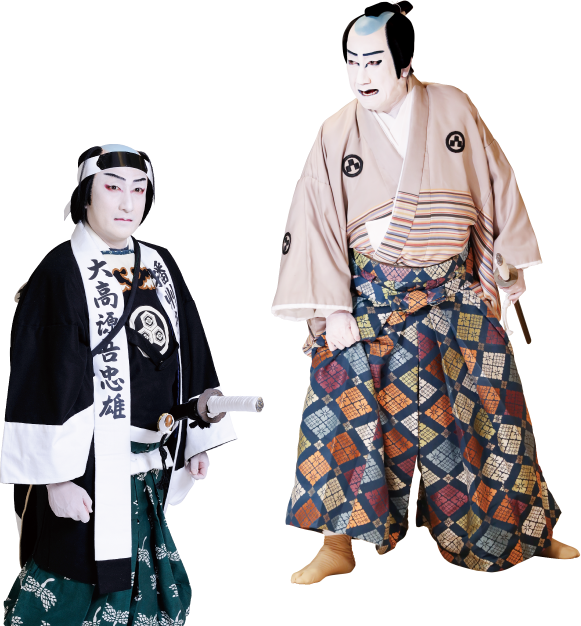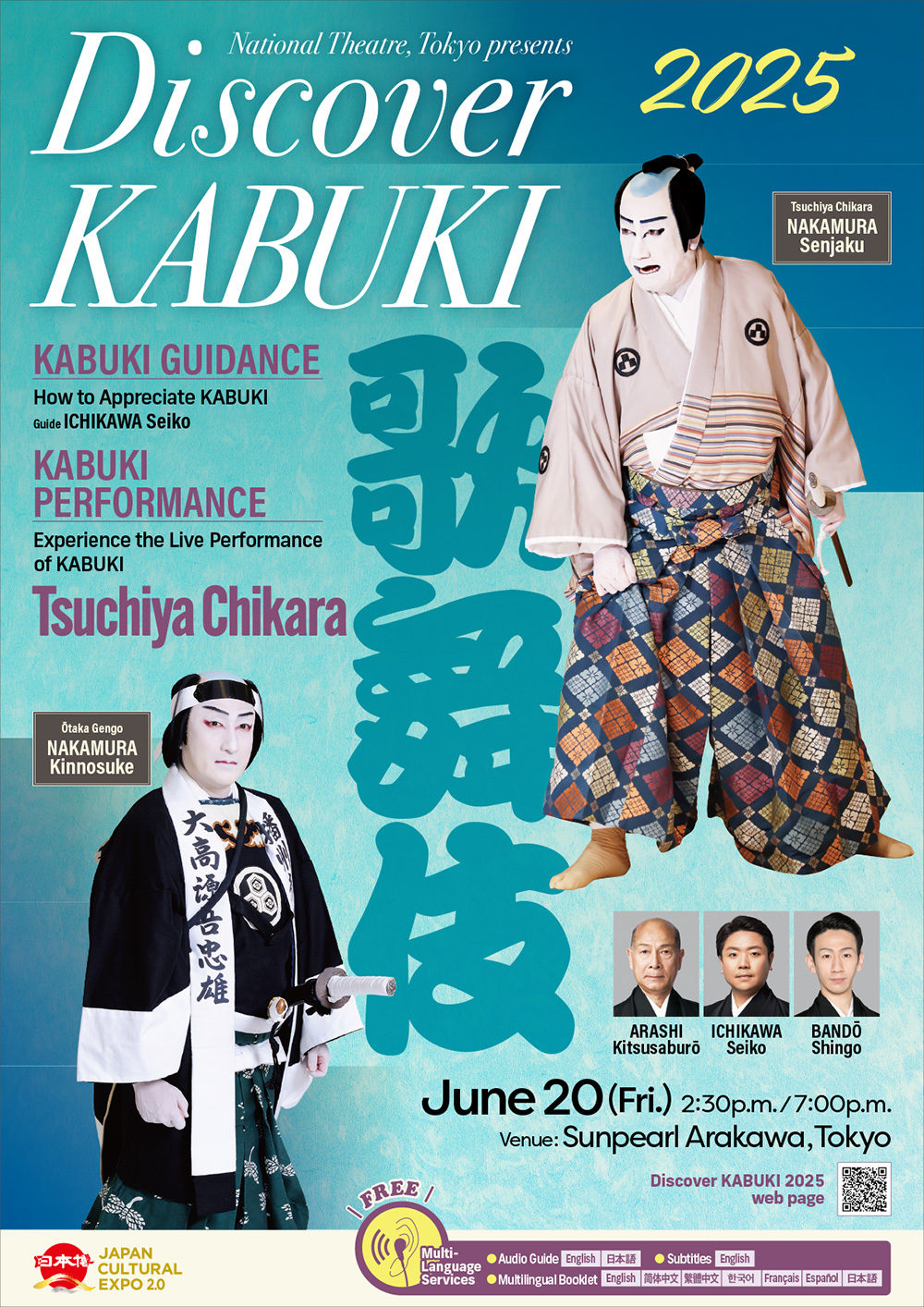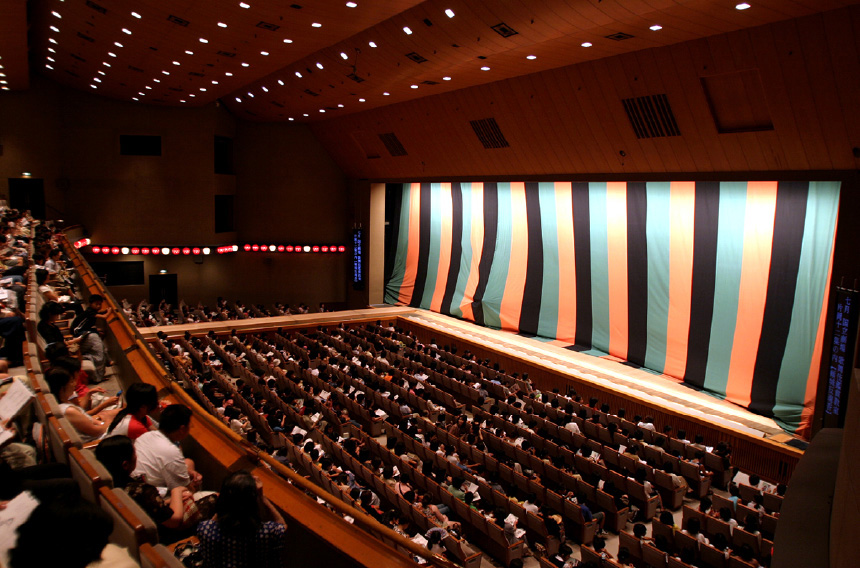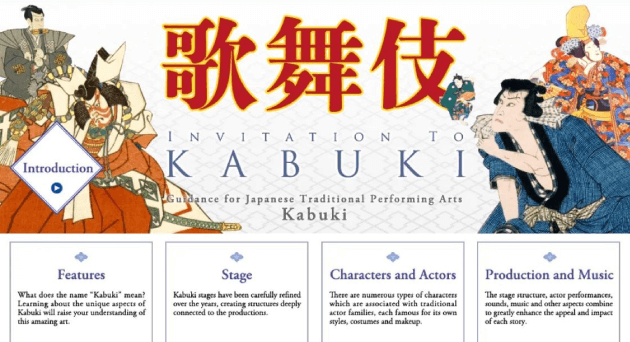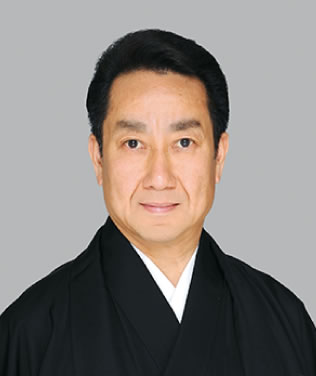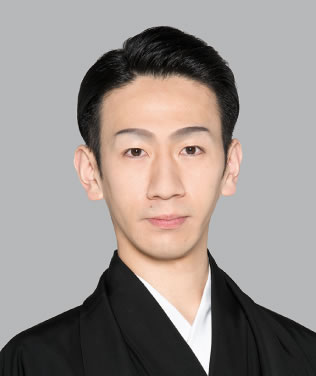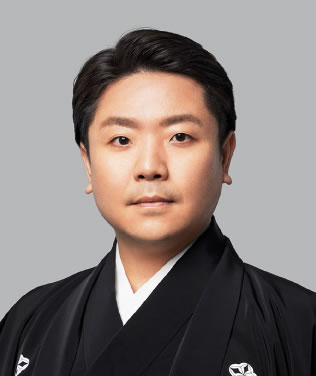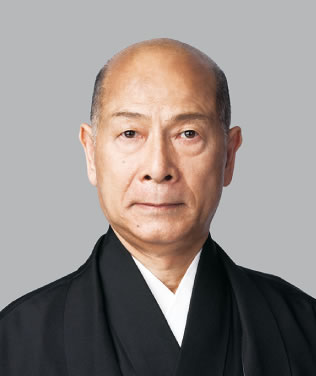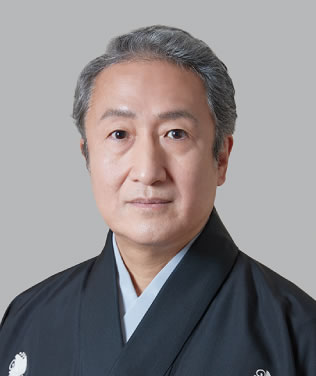Story of
Tsuchiya Chikara
The story begins with the scene where Ōtaka Gengo visits the house of the Haiku poet Shin Kikaku. A year earlier, Gengo lost his feudal lord after a feud with Kira Kōzukenosuke, resulting in his unjust execution. Gengo and his colleagues, called rōshi, have secretly decided to avenge their lord. Unable to speak of the vengeance, Gengo tells Kikaku that he is moving away as he is going to enter into another lord’s service, and therefore has come to bid him farewell.
Ochiai Kigetsu, a warrior who happened to be there late, accuses him of not taking part in the revenge for his lord. On parting, Kikaku presents a Haiku poem, “Toshinoseya mizuno nagaremo hitono mimo (It is the end of the year, one’s circumstances change like the flow of water)” to Gengo as a farewell gift. Gengo, in return, delivers a complementary phrase ― “Ashita mataruru sono takarabune (Awaiting a treasure ship that is coming tomorrow)” ― and walks away.
That night, Tsuchiya Chikara, a hatamoto (direct retainer of the shogun) who lives next to Kira Kōzukenosuke’s residence, was talking to Osono, a ladies’ attendant and the sister of one of the rōshi, about the mind of the rōshi anticipating vengeance for their lord’s death. Then comes Kikaku, who talks about the incident involving Gengo. Hearing this, Chikara sees through Gengo’s real intention hidden in his Haiku. Then comes the sound of swords from Kira’s residence. Chikara exults, knowing he guessed right. So, what would have been Gengo’s true intention hidden in his Haiku “Ashita mataruru…”?
As a high-ranking warrior, Chikara behaves calmly yet intrepidly. Learning that Gengo and his comrades have realized their long-cherished wish, he bursts with joy, which permeates the stage. Meanwhile, the charms of the powerful Kabuki lines sets off the passage in which Gengo recounts the firm determination of all the rōshi who achieved their ambitions.


